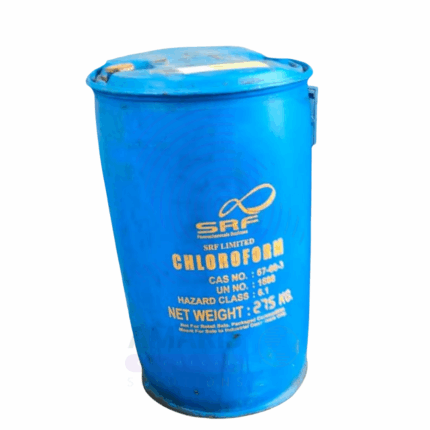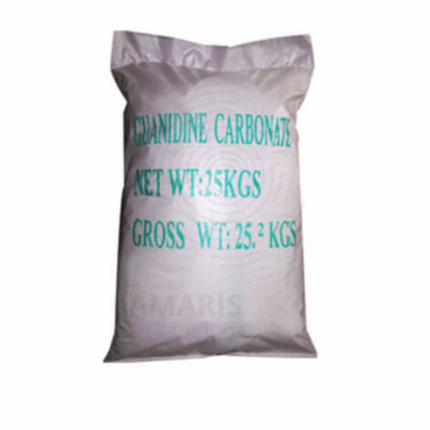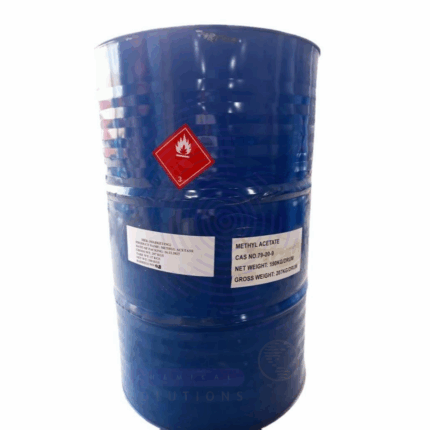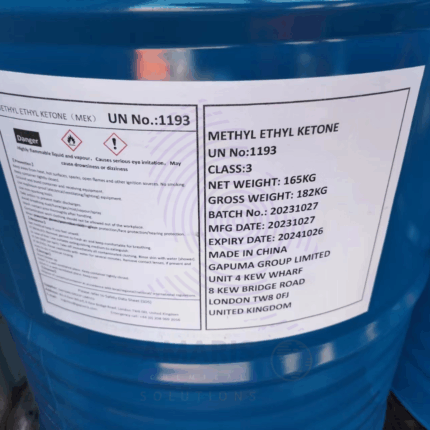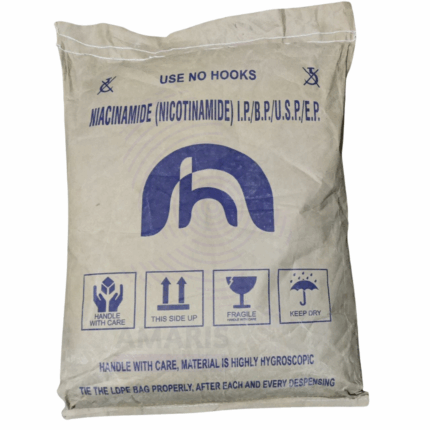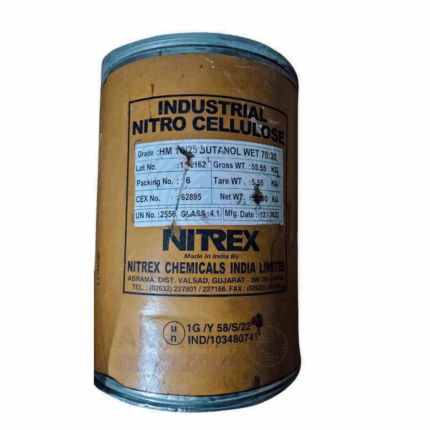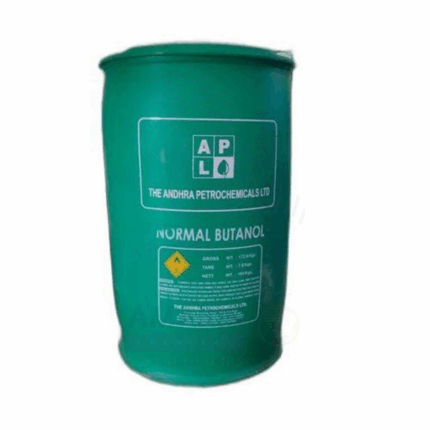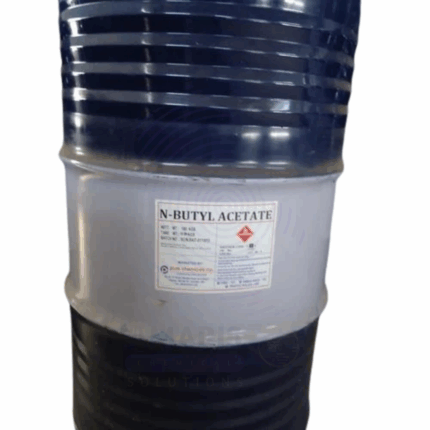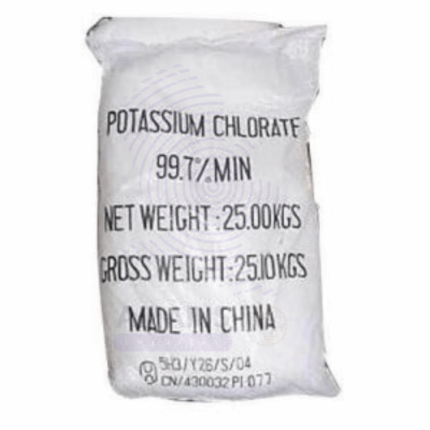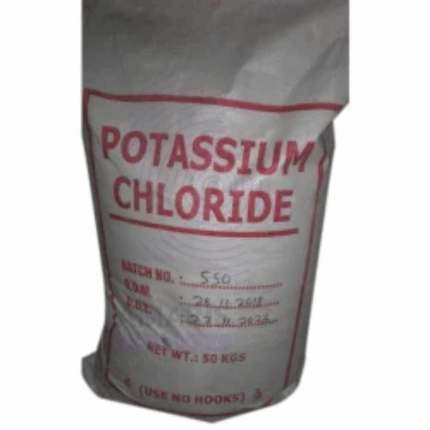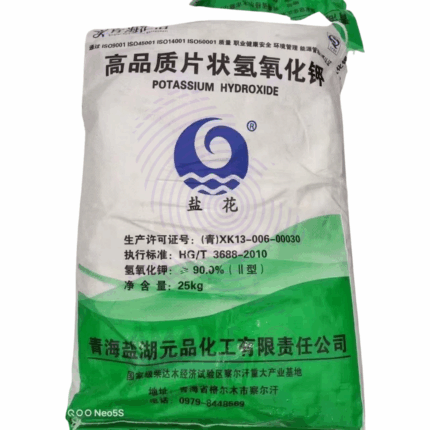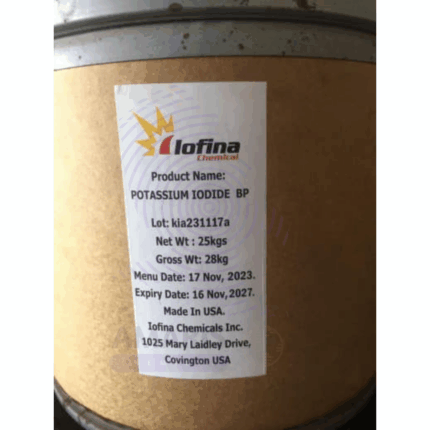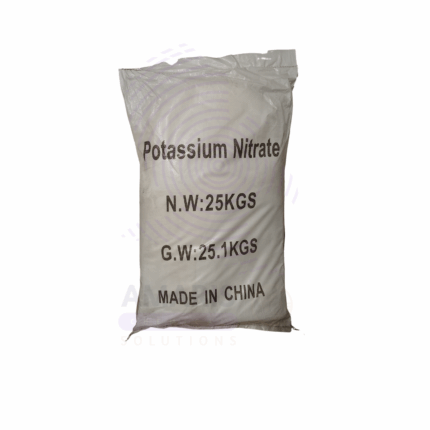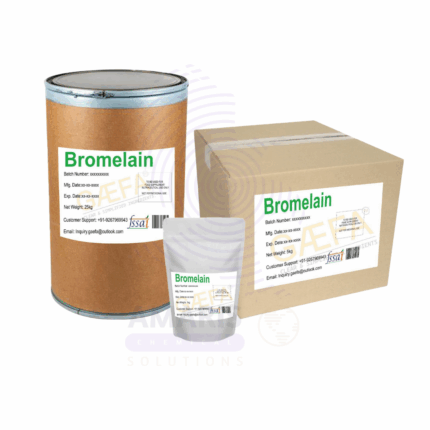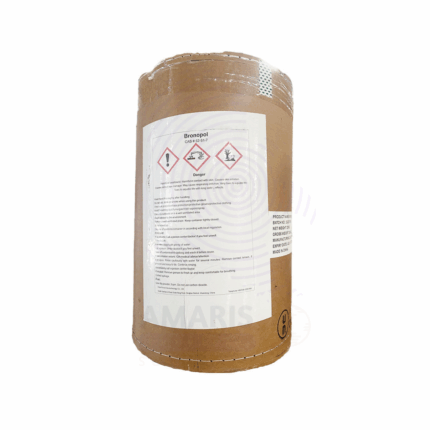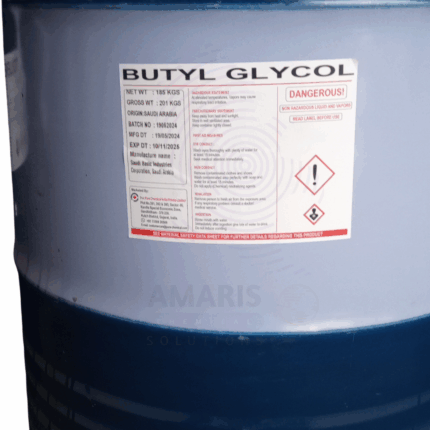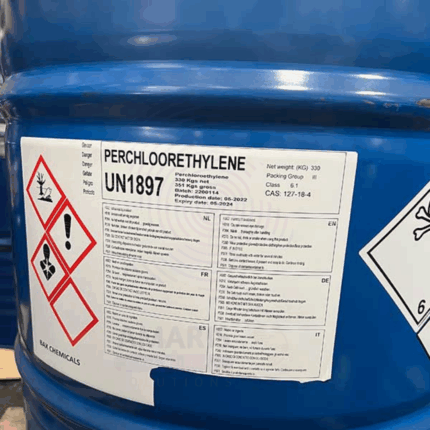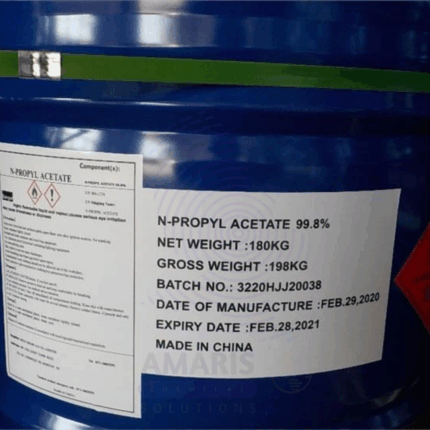Chloroform
Chloroform (Trichloromethane) is a clear, colorless, volatile liquid with a sweet, pleasant odor. It is a widely used organic solvent with excellent solvency for many substances. Historically employed as an anesthetic, chloroform is now primarily used in laboratories and industry for extraction, degreasing, and chemical synthesis. It has moderate volatility and is heavier than air, requiring careful handling to avoid inhalation hazards. Its chemical stability and ability to dissolve fats, alkaloids, and other substances make it valuable in pharmaceutical, chemical, and industrial processes.
Guanidine Carbonate
Guanidine Carbonate is a white crystalline powder, highly soluble in water, with strong basicity and high nitrogen content. It’s a versatile chemical intermediate widely used in pharmaceuticals, agriculture, polymer chemistry, textiles, and laboratory research. Its buffering properties and reactivity make it valuable in synthesis, pH regulation, and as a nitrogen source.
Neomycin Sulphate BP Oral
Product Description
Neomycin Sulphate BP Oral is an aminoglycoside antibiotic derived from Streptomyces fradiae. It is used primarily for treating infections caused by susceptible aerobic gram-negative and some gram-positive bacteria. The oral form is especially utilized for intestinal antisepsis, to reduce bacterial flora before gastrointestinal surgery, or to treat hepatic encephalopathy by decreasing ammonia-producing bacteria in the gut. It is available in powder or tablet form conforming to British Pharmacopoeia (BP) standards, ensuring high purity and efficacy.Nickel Sulphate
Product Description
Nickel Sulphate is an inorganic compound consisting of nickel and sulfate ions, typically found as a green crystalline solid. It is highly soluble in water and widely used as a key raw material in electroplating, chemical synthesis, and battery manufacturing. Nickel Sulphate plays a crucial role in producing nickel metal coatings, catalysts, pigments, and in the preparation of other nickel compounds. Due to its versatile chemical properties, it is essential in various industrial processes.Methyl Ethyl Ketone
Methyl Ethyl Ketone, also known as Butanone, is a clear, colorless liquid with a sharp, sweet odor. It is a highly effective solvent widely used in industrial processes due to its excellent solvency, fast evaporation rate, and compatibility with a wide range of substances. MEK is commonly used in coatings, adhesives, printing inks, and cleaning formulations.
Nicotinamide BP
Nicotinamide BP, also known as niacinamide, is a water-soluble form of vitamin B3 (niacin). It is a vital nutrient involved in numerous cellular processes, including energy metabolism, DNA repair, and antioxidant activity. Widely used in pharmaceutical, cosmetic, and nutritional applications, Nicotinamide supports skin health, improves barrier function, and exhibits anti-inflammatory properties. It is commonly found in dietary supplements, skincare formulations, and medical treatments for various dermatological conditions.
Methyl Iso Butyl Ketone (MIBK)
Methyl Iso Butyl Ketone (MIBK) is a clear, colorless liquid with a characteristic sharp, sweet odor. It is a versatile solvent widely used in industrial applications due to its excellent solvency, moderate evaporation rate, and chemical stability. MIBK is commonly utilized in coatings, adhesives, printing inks, and chemical synthesis.
Nutrient Agar
Product Description
Nutrient Agar is a general-purpose solid growth medium used extensively in microbiology laboratories for the cultivation of a wide variety of non-fastidious microorganisms. It consists of a blend of peptones, beef extract, and agar as the solidifying agent. Nutrient Agar supports the growth of bacteria and fungi, providing essential nutrients such as amino acids, nitrogen, vitamins, and minerals.Norfloxacin
Product Description
Norfloxacin is a synthetic broad-spectrum fluoroquinolone antibiotic used primarily to treat bacterial infections. It works by inhibiting bacterial DNA gyrase and topoisomerase IV, enzymes essential for DNA replication, transcription, repair, and recombination, leading to bacterial cell death. Norfloxacin is effective against various Gram-negative and some Gram-positive bacteria and is commonly used in urinary tract infections, prostatitis, and gastroenteritis.Normal Butanol
Normal Butanol is a straight-chain primary alcohol with the chemical formula C4H10O. It is a colorless, flammable liquid with a characteristic alcoholic odor. Known for its good solvent properties and moderate evaporation rate, n-Butanol is widely used in industrial applications such as solvents for paints, coatings, adhesives, and as an intermediate in chemical synthesis.
Porcelain Boat
Porcelain Boat is a specialized ceramic container made from high-quality porcelain material. It is designed for laboratory, pharmaceutical, and culinary applications requiring heat resistance, chemical inertness, and easy cleaning. The porcelain boat's smooth surface and durable construction make it ideal for use in processes like ashing, drying, and sample handling.
CMC Sodium (Carboxymethyl Cellulose Sodium)
CMC Sodium, or Carboxymethyl Cellulose Sodium, is a water-soluble anionic cellulose ether derived from natural cellulose. It appears as a white to off-white, odorless, tasteless powder or granule. Known for its excellent thickening, stabilizing, emulsifying, and water-retention properties, CMC is widely used in food, pharmaceutical, personal care, industrial, and detergent applications. It functions by modifying the rheological properties of solutions and suspensions, offering control over viscosity and flow. Its biocompatibility, non-toxicity, and biodegradability make it suitable for both human use and environmentally friendly formulations.
Porous Pot
Porous Pot is a specialized ceramic or composite container characterized by its permeable walls that allow the passage of liquids and gases while retaining solids. It is commonly used in filtration, diffusion, and controlled release applications. The porous structure enables efficient separation, aeration, or gradual release of substances, making it essential in chemical, environmental, and industrial processes.
Normal Butyl Acetate
Normal Butyl Acetate (n-Butyl Acetate) is a clear, colorless, flammable liquid with a sweet, fruity odor. It is an ester formed by the reaction of acetic acid and n-butanol. Widely used as a solvent in various industries, it offers excellent solvency for many resins and coatings, making it a preferred choice in paints, adhesives, and inks. Its moderate evaporation rate contributes to good application properties.
Potassium Chlorate
Potassium Chlorate is a strong oxidizing agent and crystalline chemical compound widely used in various industrial, laboratory, and commercial applications. It appears as a white, odorless, and water-soluble solid. Potassium Chlorate serves primarily as a source of oxygen in chemical reactions and is critical in the manufacture of explosives, matches, fireworks, and disinfectants. Due to its reactive nature, it requires careful handling and storage.
Normal Hexane
Product Description
Normal Hexane is a colorless, highly flammable liquid hydrocarbon with the chemical formula C6H14. It belongs to the aliphatic hydrocarbon family and is primarily used as a solvent due to its excellent ability to dissolve oils, fats, and various organic compounds. It has a low boiling point and evaporates quickly, making it ideal for industrial and laboratory applications.Potassium Chloride BP
Potassium Chloride BP (British Pharmacopoeia grade) is a high-purity, pharmaceutical-grade potassium salt widely used in medical, agricultural, and industrial applications. It is a white crystalline solid that is highly soluble in water and serves as an essential source of potassium ions in various biochemical and physiological processes. The BP grade ensures strict compliance with purity and quality standards, making it suitable for pharmaceutical formulations and clinical use.
Potassium Chromate
Potassium Chromate is an inorganic chemical compound and a bright yellow crystalline solid commonly used as an oxidizing agent and pigment. It serves as a source of chromate ions in various chemical, industrial, and laboratory applications. Due to its toxic and carcinogenic nature, careful handling and strict regulatory compliance are essential. Potassium Chromate is widely used in corrosion inhibition, dyeing, and chemical synthesis processes.
Potassium Citrate
Potassium Citrate is a potassium salt of citric acid, appearing as a white, crystalline, water-soluble powder. It is widely used in food, pharmaceutical, agricultural, and industrial applications due to its buffering, alkalizing, and sequestrant properties. Potassium Citrate helps regulate acidity and provides potassium ions critical for various biochemical and physiological functions.
Potassium Hydroxide
Potassium Hydroxide is a highly concentrated, caustic alkaline chemical available as a solid (pellets, flakes) or concentrated aqueous solution. It is a strong base widely used in industrial processes, chemical manufacturing, and as a reagent. Potassium Hydroxide provides excellent neutralizing, saponifying, and cleaning properties and is essential in producing potassium soaps, biodiesel, fertilizers, and various chemical compounds. Its high purity and concentration (90%) make it suitable for demanding applications requiring strong alkalinity.
Potassium Iodide
Potassium Iodide is a white, crystalline inorganic salt that serves as a vital source of iodine. It is widely used in medical, pharmaceutical, nutritional, and industrial fields. Potassium Iodide is highly soluble in water and is used both as a dietary supplement to prevent iodine deficiency and as a protective agent against radioactive iodine exposure. It also finds applications in chemical synthesis and photographic processes.
Potassium Nitrate
Potassium Nitrate is a white crystalline salt commonly known as saltpeter. It is a key oxidizing agent widely used in fertilizers, food preservation, pyrotechnics, and chemical manufacturing. Potassium Nitrate provides essential potassium and nitrogen nutrients in agriculture and acts as a source of oxygen in combustion reactions. Its stability and solubility make it valuable across various industries from agriculture to explosives.
Bromelain
Bromelain is a natural mixture of proteolytic enzymes derived primarily from the stem and fruit of the pineapple plant (Ananas comosus). It appears as a pale yellow to off-white powder with a characteristic mild odor and is water-soluble. Bromelain exhibits protease activity, breaking down proteins into peptides and amino acids, making it valuable in medical, food, and industrial applications. It is widely used as an anti-inflammatory agent, digestive aid, meat tenderizer, and in cosmetic formulations due to its enzymatic and therapeutic properties.
Bronopol
Bronopol (2-Bromo-2-nitropropane-1,3-diol) is a water-soluble, white crystalline powder or granules with a slight odor. It is a synthetic antimicrobial agent widely used as a preservative in personal care products, pharmaceuticals, cosmetics, and industrial applications. Bronopol exhibits broad-spectrum bactericidal and fungicidal activity, making it effective against a wide range of microorganisms. It works by releasing active formaldehyde slowly, which disrupts microbial metabolism and reproduction.
Butyl Glycol
Butyl Glycol, also known as 2-Butoxyethanol, is a colorless to pale yellow liquid with a mild, sweet ether-like odor. It is an organic solvent classified as a glycol ether, with the molecular formula C6H14O2. Butyl Glycol is highly miscible with water, alcohols, and many organic solvents. It is widely used in industrial and commercial applications due to its excellent solvent properties, low volatility, and moderate toxicity. Its high solvency and compatibility with both aqueous and organic phases make it valuable in coatings, cleaning products, inks, and adhesives.
Pentaerythritol
Pentaerythritol is a high-purity, crystalline polyol used extensively in the production of alkyd resins, synthetic lubricants, explosives, and plasticizers. Its multifunctional alcohol structure provides excellent stability, high melting point, and good compatibility with various chemicals. Pentaerythritol 98% is valued for its role as a building block in chemical syntheses, offering enhanced durability, flexibility, and resistance in end products.
Perchloroethylene
Perchloroethylene (also known as tetrachloroethylene or PCE) is a clear, colorless liquid with a sweet odor, widely used as a solvent in dry cleaning and industrial degreasing. It has excellent solvent power for organic materials, is non-flammable, and chemically stable under normal conditions. Perchloroethylene is valued for its efficiency in removing oils, greases, and waxes from fabrics and metals, and serves as a key chemical intermediate in various industrial applications.
Phloretin
Product Description
Phloretin is a natural dihydrochalcone flavonoid primarily extracted from apple tree leaves and other fruit sources. It is recognized for its potent antioxidant properties and its ability to inhibit melanin synthesis, making it highly valued in cosmetic and pharmaceutical industries. Phloretin is a yellowish crystalline powder with low solubility in water but good solubility in organic solvents. It is widely used in skincare formulations for its skin-brightening, anti-aging, and anti-inflammatory benefits.STPP (Granules)
Sodium Tripolyphosphate (STPP) in granulated form is a versatile, high-purity inorganic compound widely used in industrial, cleaning, and food processing applications. Presented as free-flowing white granules, this form offers excellent solubility and ease of handling, making it ideal for automated dosing and blending. Granular STPP is valued for its water-softening, dispersing, emulsifying, and preservative properties, supporting a wide range of formulations across multiple industries.
Styrene Acrylic
Styrene Acrylic is a copolymer emulsion combining styrene and acrylic monomers, widely used as a versatile binder in coatings, adhesives, and construction materials. It offers excellent film-forming properties, adhesion, water resistance, and durability. This product enhances the performance and longevity of paints, sealants, textiles, and paper coatings, with flexibility for both indoor and outdoor applications. Styrene Acrylic emulsions are designed to meet stringent industrial and environmental standards.
Styrene Acrylic Emulsion Polymer
Styrene Acrylic Emulsion Polymer is a water-based copolymer emulsion combining styrene and acrylic monomers, designed as a versatile binder with excellent film formation, adhesion, and durability. Widely used across paints, coatings, adhesives, textiles, and construction materials, this polymer offers superior weather resistance, water repellency, and flexibility. Its emulsified form enables easy incorporation into aqueous formulations, delivering enhanced performance and environmental benefits by reducing VOC emissions.
N-Butanol
N-Butanol (1-butanol) is a four-carbon linear alcohol with the chemical formula C₄H₉OH. It is a colorless, flammable liquid with a mild, alcoholic odor. N-Butanol is widely used as a solvent in paints, coatings, adhesives, and chemical synthesis. It serves as an intermediate in the manufacture of plasticizers, butyl acrylate, and other chemicals. Its moderate volatility and solvent properties make it valuable in industrial and commercial applications.
N propyl Acetate
N propyl Acetate is a clear, colorless, flammable liquid ester with a fruity odor, chemically known as propyl ethanoate. It is widely used as a solvent in coatings, inks, adhesives, and cleaning agents due to its excellent solvency and moderate evaporation rate. N-Propyl Acetate is valued for its ability to dissolve various resins and polymers, providing good film formation and gloss in paints and coatings.
Naphazolin hCL USP
Naphazolin Hydrochloride (Naphazolin HCL) is a topical sympathomimetic agent commonly used as a nasal decongestant and ophthalmic vasoconstrictor. It is a white to off-white crystalline powder soluble in water and alcohol. Naphazolin HCL works by constricting blood vessels, reducing swelling and redness in mucous membranes and eyes. It is widely used in pharmaceutical formulations such as nasal sprays and eye drops.
Naphta Solvent 150
Solvent Naphtha C10 150 is a light petroleum-derived hydrocarbon solvent consisting mainly of C10 aliphatic and aromatic hydrocarbons with a boiling range around 150°C. It is a clear, colorless liquid widely used in industrial and commercial applications as a solvent for paints, coatings, adhesives, and cleaning agents. This 25kg packaged product is valued for its good solvency, moderate evaporation rate, and compatibility with a variety of resins and oils.
Ammonium Cupric Chloride Extra Pure
- SHORT DESCRIPTION
Anhydrous Aluminum Chloride Extra Pure
- SHORT DESCRIPTION
Cupric Carbonate Extra Pure
SHORT DESCRIPTION
Cupric Carbonate Extra Pure is a fine, green, high-purity compound used in laboratories for inorganic synthesis, analytical chemistry, and educational demonstrations. It serves as a reliable source of copper ions in reactions and decomposes upon heating to form copper oxide, making it useful for studying thermal decomposition. In qualitative analysis, it is employed to observe characteristic reactions of copper salts. Its extra pure grade ensures minimal interference from impurities, supporting accurate experimental outcomes. Cupric carbonate should be handled in a dry environment and stored in tightly sealed containers to prevent degradation and maintain stability.
Styrene Polymer Copolymer (230kg)
Styrene Polymer Copolymer is a high-performance copolymer consisting primarily of styrene combined with other monomers such as acrylonitrile or butadiene, designed to offer enhanced mechanical properties, chemical resistance, and processability. Supplied in bulk packaging of 230kg, it is widely used in plastics, adhesives, coatings, and rubber industries. This copolymer provides excellent toughness, thermal stability, and versatility, making it suitable for demanding industrial applications.
Sucralose
Sucralose is a high-intensity, zero-calorie artificial sweetener derived from sucrose through selective chlorination. It is approximately 600 times sweeter than sugar, making it an effective sugar substitute in a wide range of food and beverage applications. Sucralose is stable under heat and across a broad pH range, suitable for cooking, baking, and long shelf-life products. It delivers sweetness without calories or glycemic impact, favored in health-conscious and diabetic-friendly formulations.
Sucrose (25kg)
Sucrose, commonly known as table sugar, is a natural disaccharide composed of glucose and fructose. It is a widely used sweetening agent in food and beverages, known for its clean, sweet taste and excellent solubility in water. Supplied in 25kg bags, sucrose serves as a key ingredient in cooking, baking, and industrial applications. It also functions as a preservative, texture enhancer, and fermentation substrate in various industries.
Sulfadiazine Base BP
Sulfadiazine Base BP is a broad-spectrum sulfonamide antibiotic used primarily in veterinary and human medicine to treat bacterial infections. It functions by inhibiting bacterial synthesis of folic acid, thereby preventing bacterial growth and proliferation. The British Pharmacopoeia (BP) grade ensures pharmaceutical-grade purity and quality suitable for formulation into tablets, suspensions, and topical preparations.
Sulphadimidine BP Vet
Sulphadimidine BP Vet (also known as Sulfadimidine or Sulfamethazine) is a synthetic sulfonamide antibacterial agent used primarily in veterinary medicine. It is effective against a broad range of Gram-positive and Gram-negative bacteria by inhibiting folic acid synthesis, essential for bacterial growth. This BP-grade product ensures pharmaceutical quality suitable for treating infections in livestock and companion animals, promoting animal health and productivity.
Sulphadimidine Sodium BP
Sulphadimidine Sodium BP is the sodium salt form of sulphadimidine, a synthetic sulfonamide antibacterial agent primarily used in veterinary and pharmaceutical applications. It offers improved solubility in water compared to the base form, making it suitable for injectable solutions, oral suspensions, and medicated feed additives. The British Pharmacopoeia (BP) grade assures pharmaceutical quality and purity for effective treatment of bacterial infections.
Sulphadoxine BP 98
Sulphadoxine BP 98 is a long-acting synthetic sulfonamide antibiotic used primarily in combination therapies for treating malaria and certain bacterial infections. Its prolonged half-life makes it suitable for single-dose treatments and prophylaxis. The British Pharmacopoeia (BP) 98% grade ensures pharmaceutical-grade purity, making it suitable for incorporation into human and veterinary medicinal formulations.
Sulphamethoxazole BP
Sulphamethoxazole BP is a synthetic sulfonamide antibiotic widely used in human and veterinary medicine for treating bacterial infections. It acts by inhibiting bacterial synthesis of dihydrofolic acid, thereby preventing bacterial growth. It is commonly combined with trimethoprim for synergistic effects against a broad spectrum of bacteria. The British Pharmacopoeia (BP) grade guarantees pharmaceutical purity and quality, making it suitable for formulation into tablets, suspensions, and other dosage forms.
Sulphamethoxazole BP micronised
Sulphamethoxazole BP Micronised is a fine, micronized form of sulphamethoxazole, a synthetic sulfonamide antibiotic used extensively in human and veterinary medicine. Micronization improves its dissolution rate and bioavailability, enhancing efficacy in oral and injectable formulations. This British Pharmacopoeia (BP) grade product ensures high purity and consistent particle size, making it ideal for pharmaceutical manufacturing.


 Preservatives(food)
Preservatives(food) Flavor Enhancers
Flavor Enhancers Acidulants
Acidulants Sweeteners
Sweeteners Antioxidants
Antioxidants Colorants(food)
Colorants(food) Nutraceutical Ingredients (food)
Nutraceutical Ingredients (food) Nutrient Supplements
Nutrient Supplements Emulsifiers
Emulsifiers
 Collectors
Collectors Dust Suppressants
Dust Suppressants Explosives and Blasting Agents
Explosives and Blasting Agents Flocculants and Coagulants
Flocculants and Coagulants Frothers
Frothers Leaching Agents
Leaching Agents pH Modifiers
pH Modifiers Precious Metal Extraction Agents
Precious Metal Extraction Agents
 Antioxidants(plastic)
Antioxidants(plastic) Colorants (Pigments, Dyes)
Colorants (Pigments, Dyes) Fillers and Reinforcements
Fillers and Reinforcements Flame Retardants
Flame Retardants Monomers
Monomers Plasticizers
Plasticizers Polymerization Initiators
Polymerization Initiators Stabilizers (UV, Heat)
Stabilizers (UV, Heat)
 Antifoaming Agents
Antifoaming Agents Chelating Agents
Chelating Agents Coagulants and Flocculants
Coagulants and Flocculants Corrosion Inhibitors
Corrosion Inhibitors Disinfectants and Biocides
Disinfectants and Biocides Oxidizing Agents
Oxidizing Agents pH Adjusters
pH Adjusters Scale Inhibitors( water)
Scale Inhibitors( water)
 Antioxidants(cosmetic)
Antioxidants(cosmetic) Emollients
Emollients Fragrances and Essential Oils
Fragrances and Essential Oils Humectants
Humectants Preservatives
Preservatives Surfactants(cosmetic)
Surfactants(cosmetic) Thickeners
Thickeners UV Filters
UV Filters
 Fertilizers
Fertilizers Soil Conditioners
Soil Conditioners Plant Growth Regulators
Plant Growth Regulators Animal Feed Additives
Animal Feed Additives Biostimulants
Biostimulants Pesticides (Herbicides, Insecticides, Fungicides)
Pesticides (Herbicides, Insecticides, Fungicides)
 Active Pharmaceutical Ingredients (APIs)
Active Pharmaceutical Ingredients (APIs) Excipients
Excipients Solvents(pharmaceutical)
Solvents(pharmaceutical) Antibiotics
Antibiotics Antiseptics and Disinfectants
Antiseptics and Disinfectants Vaccine Adjuvants
Vaccine Adjuvants Nutraceutical Ingredients (pharmaceutical)
Nutraceutical Ingredients (pharmaceutical) Analgesics & Antipyretics
Analgesics & Antipyretics
 Analytical Reagents
Analytical Reagents Solvents(lab)
Solvents(lab) Chromatography Chemicals
Chromatography Chemicals Spectroscopy Reagents
Spectroscopy Reagents microbiology-and-cell-culture-reagents
microbiology-and-cell-culture-reagents Molecular Biology Reagents
Molecular Biology Reagents Biochemical Reagents
Biochemical Reagents Inorganic and Organic Standards
Inorganic and Organic Standards Laboratory Safety Chemicals
Laboratory Safety Chemicals Specialty Laboratory Chemicals(Special Laboratory Equipment)
Specialty Laboratory Chemicals(Special Laboratory Equipment)
 Demulsifiers
Demulsifiers Hydraulic Fracturing Fluids
Hydraulic Fracturing Fluids Scale Inhibitors(oil)
Scale Inhibitors(oil) Surfactants(oil)
Surfactants(oil) Drilling Fluids
Drilling Fluids
 Dyes and Pigments
Dyes and Pigments Bleaching Agents
Bleaching Agents Softening Agents
Softening Agents Finishing Agents
Finishing Agents Antistatic Agents
Antistatic Agents
 Admixtures
Admixtures Waterproofing Agents
Waterproofing Agents Sealants and Adhesives
Sealants and Adhesives Curing Compounds
Curing Compounds Concrete Repair Chemicals
Concrete Repair Chemicals Anti-Corrosion Coatings
Anti-Corrosion Coatings
 Surfactants(cleaning)
Surfactants(cleaning) Builders
Builders Enzymes
Enzymes Solvents (Cleaning)
Solvents (Cleaning) Fragrances
Fragrances
 Electronic Chemicals
Electronic Chemicals Catalysts
Catalysts Lubricants
Lubricants Photographic Chemicals
Photographic Chemicals Refrigerants
Refrigerants Automotive chemicals
Automotive chemicals Pyrotechnic Chemicals
Pyrotechnic Chemicals
 Biodegradable Surfactants
Biodegradable Surfactants Bio-based Solvents
Bio-based Solvents Renewable Polymers
Renewable Polymers Carbon Capture Chemicals
Carbon Capture Chemicals Wastewater Treatment Chemicals
Wastewater Treatment Chemicals
 Pigments
Pigments Solvents(paint)
Solvents(paint) Specialty Coatings
Specialty Coatings Binders/Resins
Binders/Resins Additives
Additives Driers
Driers Anti-Corrosion Agents
Anti-Corrosion Agents Functional Coatings
Functional Coatings Application-Specific Coatings
Application-Specific Coatings
 Fresh Herbs
Fresh Herbs Ground Spices
Ground Spices Whole Spices
Whole Spices Spice Blends
Spice Blends Dried Herbs
Dried Herbs
 Leavening Agents
Leavening Agents Dough Conditioners
Dough Conditioners Flour Treatments
Flour Treatments Fat Replacers
Fat Replacers Decoratives
Decoratives Preservatives(baking)
Preservatives(baking)
 Plasticizers & Softeners
Plasticizers & Softeners Reinforcing Agents
Reinforcing Agents Adhesion Promoters
Adhesion Promoters Vulcanizing Agents
Vulcanizing Agents Antidegradants
Antidegradants Blowing Agents
Blowing Agents Fillers & Extenders
Fillers & Extenders Accelerators & Retarders
Accelerators & Retarders

















